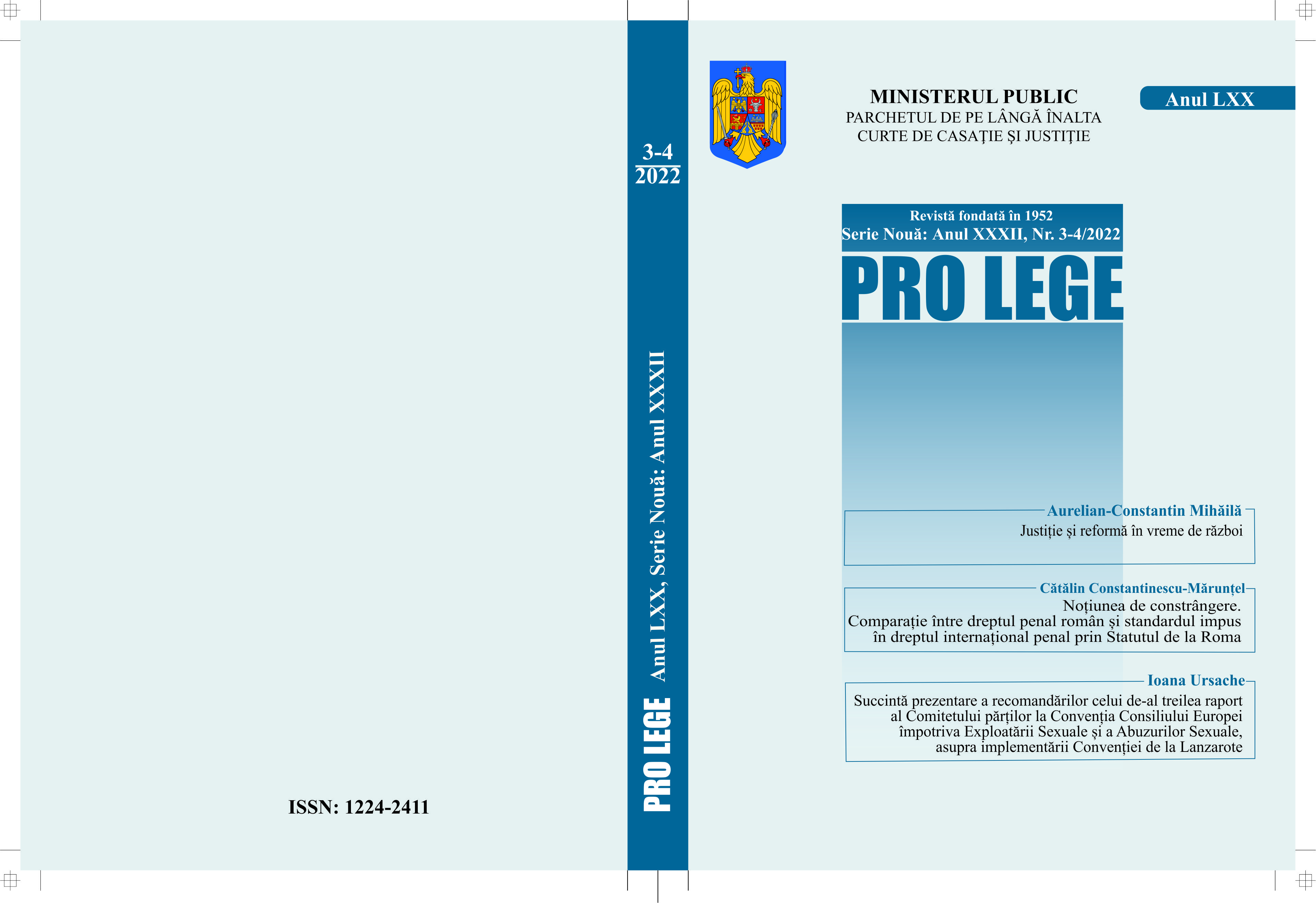Art. 8 din Convenție. Dreptul la viață privată. Obligații pozitive. Deficiențe importante în ceea ce privește investigarea penală a faptelor reclamate de hărțuire sexuală la locul de muncă
Art. 8 of the Convention. The right to privacy. Positive obligations. Significant deficiencies in the criminal investigation of alleged acts of sexual harassment at the workplace
Author(s): Antonia-Eleonora ConstantinSubject(s): Law, Constitution, Jurisprudence, Civil Law, Human Rights and Humanitarian Law
Published by: Universul Juridic
Keywords: the right to private life; personal integrity; violation; positive obligations; sexual harassment at work; prosecutor; courts; evidence; motivation; secondary victimization;
Summary/Abstract: The case concerns violations of the positive obligations implied by art. 8 of the Convention. The Court accepts that member states enjoy a wide margin of action in terms of establishing the necessary measures to ensure compliance with the Convention, its role being subsidiary, that of examining, in the light of the Convention, the decisions that the national authorities have taken in exercising their discretion to protect individuals against attacks on personal integrity. In the case, the Court established that the national protection system circumscribed by the internal policies of the aggressor's employer and the criminal legislation experienced major application deficiencies in the case of the applicant, constituting an ineffective response that both the aggressor's employer and the judicial authorities gave regarding the reported acts of sexual harassment at work. Although the criminal investigation was carried out promptly, the judicial authorities that ruled in the case of the applicant did not provide reasons capable of explaining the way in which they interpreted and applied the law to the facts in question. The applicant's statements were not analyzed and the judicial authorities did not have an active role to establish the psychological consequences that the acts of sexual harassment had on the victim. By reproducing in extenso, in the justification of the classification order, the perpetrator's statements, which contained derogatory statements and insinuations towards the victim, and by confronting the victim with one of the witnesses, without the prosecutor analyzing the necessity of the evidence and the impact of its administration on the victim, a situation of secondary victimization, contrary to the international documents to which Romania is a party.
Journal: Revista Pro Lege
- Issue Year: 2022
- Issue No: 3-4
- Page Range: 282-292
- Page Count: 11
- Language: Romanian

